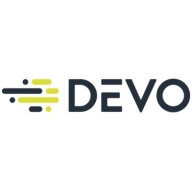

Devo and DNIF HYPERCLOUD are powerful platforms in the cybersecurity space, providing robust threat detection and response capabilities. Devo has the upper hand in user satisfaction related to support and overall experience, while DNIF HYPERCLOUD is highlighted for its advanced features, which many users find worth the higher price point.
Features: Devo excels in real-time data analytics and seamless data integration and has intuitive user interfaces. DNIF HYPERCLOUD stands out for its machine learning capabilities, customizable threat detection, and high scalability.
Room for Improvement: Devo could improve its scalability, add more detailed reporting functionalities, and enhance its alerting system. DNIF HYPERCLOUD needs enhanced ease in setup, more comprehensive documentation, and better user training resources.
Ease of Deployment and Customer Service: Devo users benefit from a straightforward deployment process and responsive customer support. DNIF HYPERCLOUD users face a steeper learning curve but acknowledge robust customer service.
Pricing and ROI: Devo is often seen as more cost-effective with significant ROI due to lower setup costs and positive long-term benefits. DNIF HYPERCLOUD is pricier but justifies its cost with advanced features that promise high returns over time.


Devo is the only cloud-native logging and security analytics platform that releases the full potential of all your data to empower bold, confident action when it matters most. Only the Devo platform delivers the powerful combination of real-time visibility, high-performance analytics, scalability, multitenancy, and low TCO crucial for monitoring and securing business operations as enterprises accelerate their shift to the cloud.
DNIF HYPERCLOUD is a cloud native platform that brings the functionality of SIEM, UEBA and SOAR into a single continuous workflow to solve cybersecurity challenges at scale. DNIF HYPERCLOUD is the flagship SaaS platform from NETMONASTERY that delivers key detection functionality using big data analytics and machine learning. NETMONASTERY aims to deliver a platform that helps customers in ingesting machine data and automatically identify anomalies in these data streams using machine learning and outlier detection algorithms. The objective is to make it easy for untrained engineers and analysts to use the platform and extract benefit reliably and efficiently.
We monitor all Log Management reviews to prevent fraudulent reviews and keep review quality high. We do not post reviews by company employees or direct competitors. We validate each review for authenticity via cross-reference with LinkedIn, and personal follow-up with the reviewer when necessary.